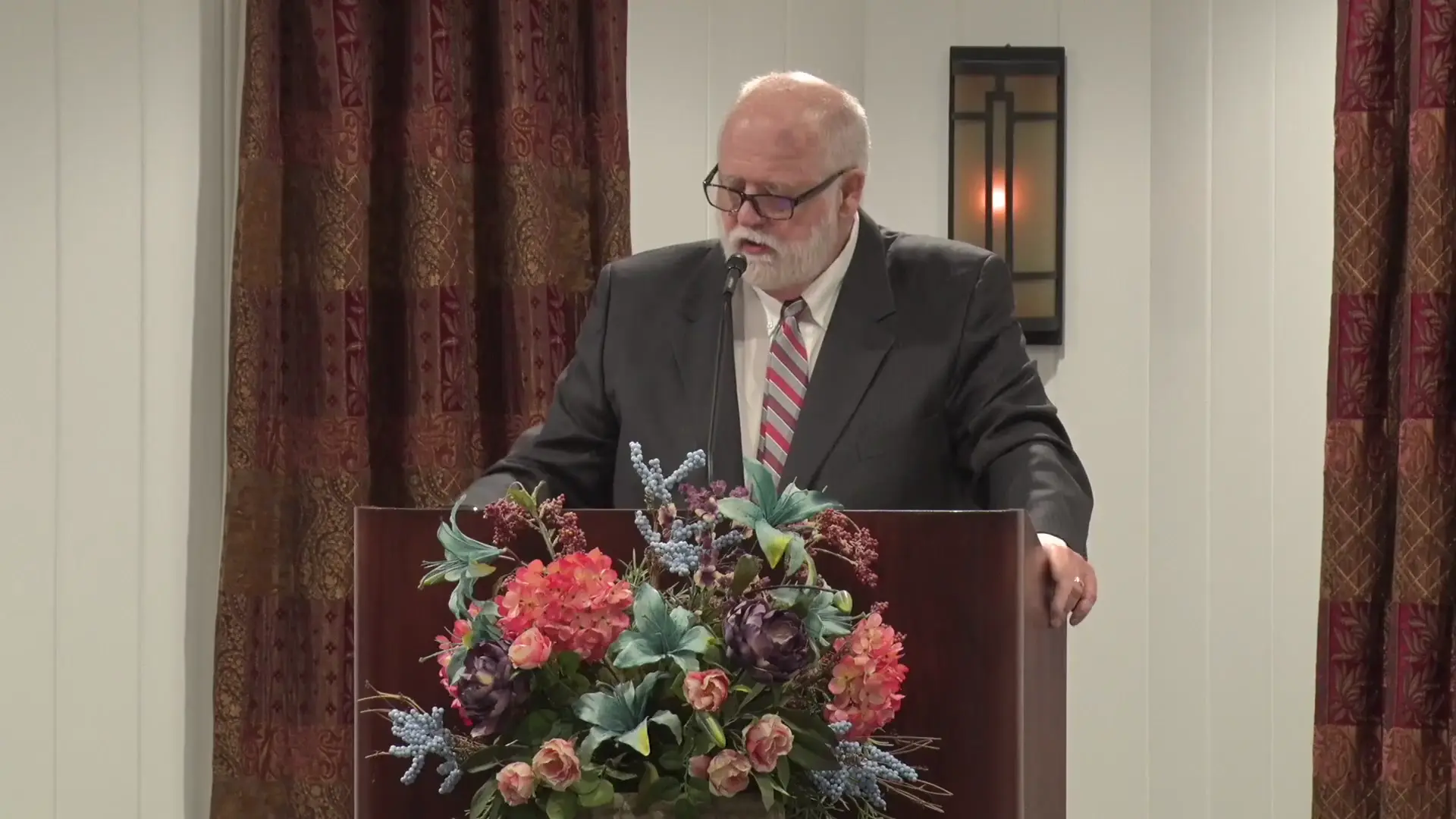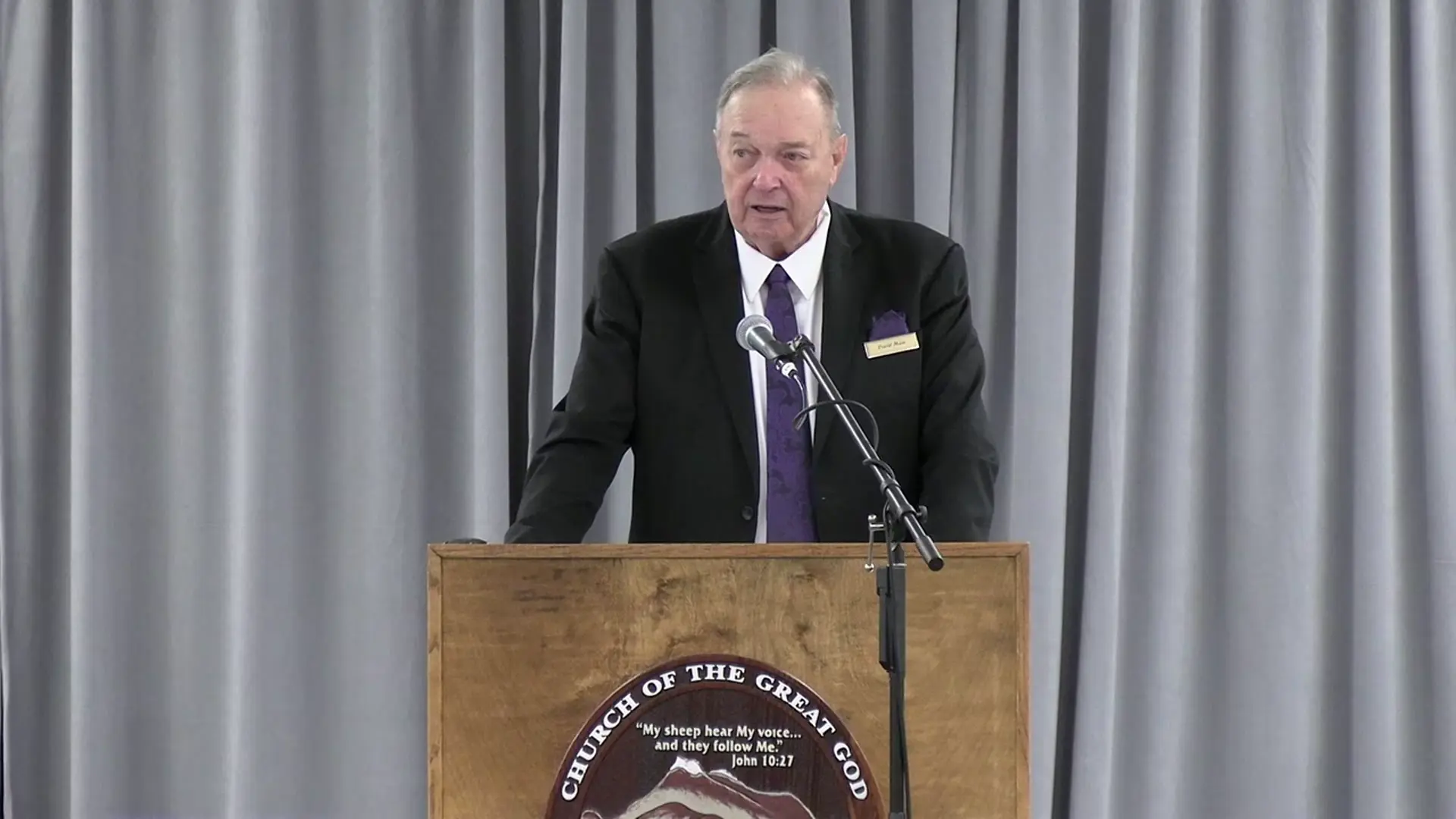Filter by Categories
God's Sabbath
Bible Study by Richard T. RitenbaughThe seventh-day Sabbath is much more than a weekly day of rest; it is the one day each week that we devote totally to God, serving as a regulator and barometer of our relationship with Him. Disregarding the Sabbath is akin to throwing away the key to a treasure chest, ignoring a vital area of understanding that opens our minds to God and His purpose. God blessed the seventh day, making it holy, a time set apart for His use, and we are instructed to keep it holy. Scriptures provide examples of prohibitions on the Sabbath, such as working, cooking, and carrying burdens, guiding us through principles to decide proper and improper behavior using God's Spirit. If we keep the Sabbath properly and work to improve our relationship with Him, this holy time becomes most precious and a tremendous blessing each week.
The Purpose of the Sabbath
Sermonette by Craig SablichThe Sabbath enables us to learn spiritual principles rather than a set of rules, and to exercise righteous judgment, aligning our actions with God's purpose.
Remember the Sabbath Day
Sermonette by Hunter D. SwansonAll of God's people have at times felt overwhelmed by grief and exhaustion, needing a genuine rehabilitative rest. The Sabbath restores spiritual strength.
Sabbathkeeping (Part 4)
Sermon by John W. RitenbaughThe Sabbath holds a vital place in God's purpose for mankind, reflecting its importance to each of us. It is not merely about observing the day, but the manner of observance that marks it as a sign between God and His people, evidencing that He, the Creator, is our God, and those who keep it are His children. God designated the Sabbath specifically, and no other day will suffice, as it memorializes both creation and redemption, signifying Him as both Creator and Savior, preserving our liberty through our relationship with Him. God requires that each person set aside the Sabbath for His worship and service, as it is holy time belonging to Him. The commandment in Exodus 20 establishes the basic rule of its use, emphasizing spiritual relationships over worldly ones from Friday at sunset. Deuteronomy 5 adds a focus on redemption, recalling our release from slavery in Egypt, further underscoring why no other day can substitute for the Sabbath. Isaiah 58 reveals God's expectation of great respect for the Sabbath, describing it as a day of joy and delight, to be held honorable and right in contrast to other days. We are to honor Him by using the Sabbath for His pleasure, will, and preferences, rather than our own desires or usual activities. The emphasis lies not on the energy expended, but on the purpose and intent behind our actions on His holy time. God provides broad principles and examples rather than specific dos and don'ts, expecting us to make righteous judgments in various circumstances. Historical instances, such as the Israelites marching out of Egypt, through the Red Sea, and around Jericho on the Sabbath, demonstrate that actions aligning with God's pleasure are permissible, even if they involve significant effort. Similarly, priests performed required offerings on the Sabbath as part of God's will. Preparation is key to proper Sabbath observance, as seen in Exodus 16 with instructions to gather double manna on Friday to avoid work on the Sabbath. This principle remains, discouraging ordinary weekday tasks, including meal preparation, on the Sabbath day. While Holy Days may allow some flexibility due to travel or unusual circumstances, the weekly Sabbath holds stricter restrictions, yet God's law bends for specific situations, as shown in various examples, encouraging us to judge righteously in applying His intent.
The Sabbath: Creation
Feast of Tabernacles Sermon by Richard T. RitenbaughGod has set apart the Sabbath as a day of cessation and solemn rest, distinct from the other six days of the week. It is not merely a time for physical rest or lounging, but a holy convocation, a day officially summoned for worshipping God together, learning His ways, and fellowshipping with like-minded believers. The command to remember the Sabbath and keep it holy, as given in Exodus 20, emphasizes ceasing from work and following God's example, who rested on the seventh day after creation, blessing and sanctifying it as a day devoted to Him. The Sabbath is not primarily about resting due to fatigue, as God does not grow weary, but about reflecting on what has been accomplished and refocusing on what is truly important. On this day, God shifted from physical creation to spiritual work, engaging in the creation of faith in those He has called to Jesus Christ. By keeping the Sabbath, we join Him in this work, contemplating His creation and purpose, and experiencing a sense of completion and well-being as He did. Furthermore, the Sabbath serves as a sign between God and His people, marking them as different and reminding them weekly that He is working to sanctify them, making them holy and separate. It is a day carved out of the week for God to devote to this special work, requiring our full attention to facilitate growth in knowing the Father and the Son, thus increasing our holiness and grasp on eternal life. Properly keeping the Sabbath means treating His holy time with respect and honor, restraining ourselves from pursuing our own activities in thought, word, and deed. God promises that if we watch our step on the Sabbath, He will grant us joy, lift us above worldly cares, and provide all He has promised in this age and the world to come. Keeping the Sabbath holy is a major key to spiritual growth and preparation for God's Kingdom, urging us to evaluate our practices to leap forward in our relationship with Him.

Polluted Sabbath?
Sermon by Bill OnisickGod commands us to be holy as He is holy, using the Hebrew terms qadosh, meaning holy, and qadash, meaning to be cleaned or sanctified. We are to qadash ourselves to become qadosh, holy like Him. In Genesis 2, God qadash-ed the Sabbath, making it holy and sanctified, setting it apart as a day like Himself. In Leviticus 23, we are commanded to keep God's Sabbath by doing no physical work and making it a holy convocation, a day of assembly where the holy God desires to be with His future holy people. Keeping this command requires gathering together with God and His people. The Sabbath is a constant reminder that God is the one who sanctifies us, cleansing and purifying us to become qadosh, holy like Him. It is a day dedicated to qadash activity, focused on becoming pure and Godlike, distinct from the other six days due to the distractions of the world. God ordained this day to be special, a time to think about Him and His sanctification process. The Sabbath is holy because He made it holy with His presence, and anyone who profanes or pollutes it will face severe consequences. Polluting God's Sabbath occurs by engaging in personal work or activities not aligned with God's qadash activity. In Luke 4, Jesus Christ demonstrates the proper way to keep the Sabbath, starting His ministry on this day and habitually assembling in the synagogue for a holy convocation. His mission is to spiritually heal and cleanse, to make qadash His chosen people, serving as the highway of holiness who sanctifies us and removes our pollutants. Jesus' ministry both began and ended on the Sabbath, emphasizing its significance. His seven recorded healings on the Sabbath, though not life-threatening, outraged the Pharisees who viewed them as breaking Sabbath laws. Yet, Jesus used these moments to teach, showing that the Sabbath is a day for mercy and good works. In Mark 2, when criticized for minimal work like plucking grain, Jesus highlighted the need for mercy and referenced the priests' doubled labors on the Sabbath in the Temple, demonstrating that Sabbath work, when aligned with God's purpose, is blameless. The Sabbath is not a day of no work but a day of great spiritual work, focused on mercy, healing, and cleansing. Following Christ's example, we must gather together on the Sabbath, using this time to extend mercy and do good for each other. As priests in training, our Sabbath work must have the right motivation, never self-focused, as self-focused work is strictly forbidden with severe penalties, as seen in Numbers 15 with the man stoned for gathering sticks. We must avoid polluting God's Sabbath by allowing distractions or worldly thoughts to dominate our minds and conversations. Our discussions on this day should build up faith and aid God's sanctification process, raising the bar on how we engage with each other. Even in assembly, if our minds wander to worldly concerns, we pollute God's holy time. We must repent and work harder to control our thoughts and words, ensuring they align with qadash activity. God has made the Sabbath holy with His presence, and we must prepare on the Preparation Day to eliminate normal physical work and distractions. Scriptures like Exodus 16:23 emphasize preparing food in advance for the weekly Sabbath, distinguishing it as a day of no work. Warnings in Amos 8 and Malachi 1 caution against longing for the Sabbath to end or offering half-hearted sacrifices through distraction, as this pollutes His holy day. As we reflect, we must identify and remove pollutants from our Sabbath observance, asking for God's help and His Holy Spirit to cleanse our thoughts, actions, and words during this holy time. The Sabbath is a day to focus on our sole reason for living, on Jesus Christ and His redemptive work, allowing Him to sanctify us and remove pollutants from our hearts. As priests in training, we must use this special day for mercy, healing, cleansing, and doing good, never forsaking the commanded holy convocation to worship Go
Sabbathkeeping (Part 1)
Sermon by John W. RitenbaughHow and why a person keeps the Sabbath determines whether this test commandment is really a sign between God and His people or an act of futility.
The Fourth Commandment (Part Two): Christ's Attitude Toward the Sabbath
'Personal' from John W. RitenbaughIn the Gospels, questions about the Sabbath center on how to keep it, not whether it should be kept. The way Jesus approached the Sabbath gives us an example.
Sabbathkeeping (Part 2)
Sermon by John W. RitenbaughIt is from the proper use of the Sabbath—in fellowshipping with Him and getting to know Him—that we derive true spiritual rest and refreshment.
Sabbathkeeping (Part 3)
Sermon by John W. RitenbaughThe biblical instructions for Sabbath keeping apply far more to the church than to the Israelites, who did not have the fullness of scriptural counsel.
Eating Out on the Sabbath
Sermon by John W. RitenbaughIn the gray areas of applying God's Law, extending mercy and easing of burdens trumps legalism and hairsplitting.
The Sabbath: Redemption
Feast of Tabernacles Sermon by Richard T. RitenbaughGod has blessed us with the Sabbath, a period of holy time, when He redeems us from the clutches of our carnality and this evil world.

Are the Sabbath and Holy Days Done Away?
'Ready Answer' by Earl L. HennTo justify not keeping the Sabbath and holy days, many use Colossians 2:16-17 as proof that Paul did not command it. The truth is just the opposite!
The Day God Rested
Sermonette by Ryan McClureGod gave the Sabbath as a blessing for man, which, if kept correctly, gives rejuvenating rest, a relief from stress, and a defense against illness.
It's Not Our Time
Article by David C. GrabbeWe live in a society that is increasingly concerned about ownership. Yet who owns the Sabbath? How does the answer to this question affect our keeping of it?
Manna and the Preparation Day (Part Two)
CGG Weekly by David C. GrabbeThe Preparation Day is a day of 'gathering' what relates to eternity so that we can properly ingest the spiritual manna on the holy day without distraction.
The Commandments (Part Seven)
Sermon/Bible Study by John W. RitenbaughThe work required on the Sabbath is to prepare for the Kingdom of God, fellowshipping with our brethren, serving where possible, and relieving burdens.
The Commandments (Part Six)
Sermon/Bible Study by John W. RitenbaughGod gave the Sabbath to His people so they can know Him intimately. Idolatry, scattering, and captivity are the natural consequences of Sabbath-breaking.
The Fourth Commandment (Part 5)
Sermon by John W. RitenbaughThe reason for refraining from many activities on the Sabbath is not labor or energy, but the overall motivation. Certain works are perfect for the Sabbath.
The Fourth Commandment (Part 1)
Sermon by John W. RitenbaughThe Sabbath is a special creation, a very specific period of holy time given to all of mankind, reminding us that God created and is continuing to create.

Holy Ground
Sermon by Ted E. BowlingThe principle of sanctification applies to time as well as place, as God sanctified the seventh day Sabbath as a covenant sign between Him and His people.
The Fourth Commandment (Part 2)
Sermon by John W. RitenbaughThe Sabbath reminds us that God is Creator and that we were once in slavery to sin. The Sabbath is a time of blessing, deliverance, liberty, and redemption.
The Fourth Commandment (Part 4)
Sermon by John W. RitenbaughFocusing on material and temporal things undermines faith. The Sabbath is holy time, created for building faith, energizing our minds for fellowship with God.
The Fourth Commandment (Part 3)
Sermon by John W. RitenbaughJesus magnified the Sabbath, giving principles by which to judge our activities. Each time Jesus taught about the Sabbath, He emphasized some form of redemption.
The Commandments (Part Nine)
Sermon/Bible Study by John W. RitenbaughBenign neglect of the Sabbath covenant can incrementally lead us into idolatry. We must treat this holy time as different from the other days of the week.

Simplifying Life (Part Five)
Feast of Tabernacles Sermon by David F. MaasThe seventh-day Sabbath is God's design for rest, sanctification, and restoration, both today and for the entire creation in the Kingdom of God.
The Commandments (Part Eight)
Sermon/Bible Study by John W. RitenbaughIn our hectic culture, we commit far too little time to God, depriving ourselves of the Holy Spirit and attenuating the faith required to draw close to God.
Sharpening Our Saws
Article by William R. GrayAmong the reasons God has provided us with the Sabbath, it as a time to sharpen our focus. Preparation is the key to getting the most out of the Sabbath.
Do We See the Line?
'Ready Answer' by Mike FordLonesome Dove contains the story of a cowboy who fails to perceive the line between right and wrong, and for his lack of moral sense, he pays with his life.
Whatsoever Your Heart Desires
Sermonette by Mark SchindlerWe must not construe the term, "whatever our heart desires," as a pass to sin, but we should use every occasion to grow in thinking and acting like God.
John (Part Nine)
Sermon/Bible Study by John W. RitenbaughJesus teaches the difference between works that cause burdens (work that profanes the Sabbath) and works that relieve burdens. The Father and Son never stop working.